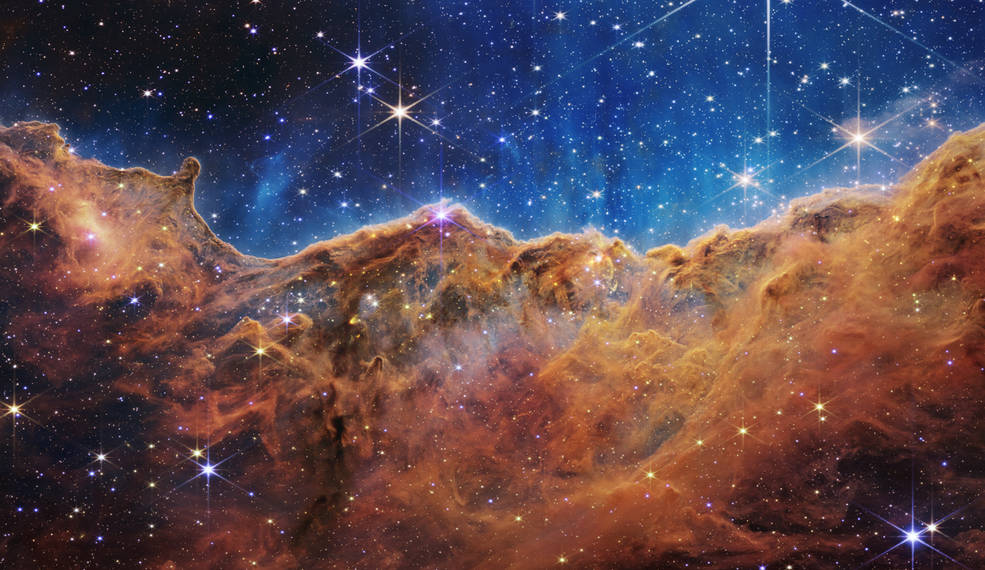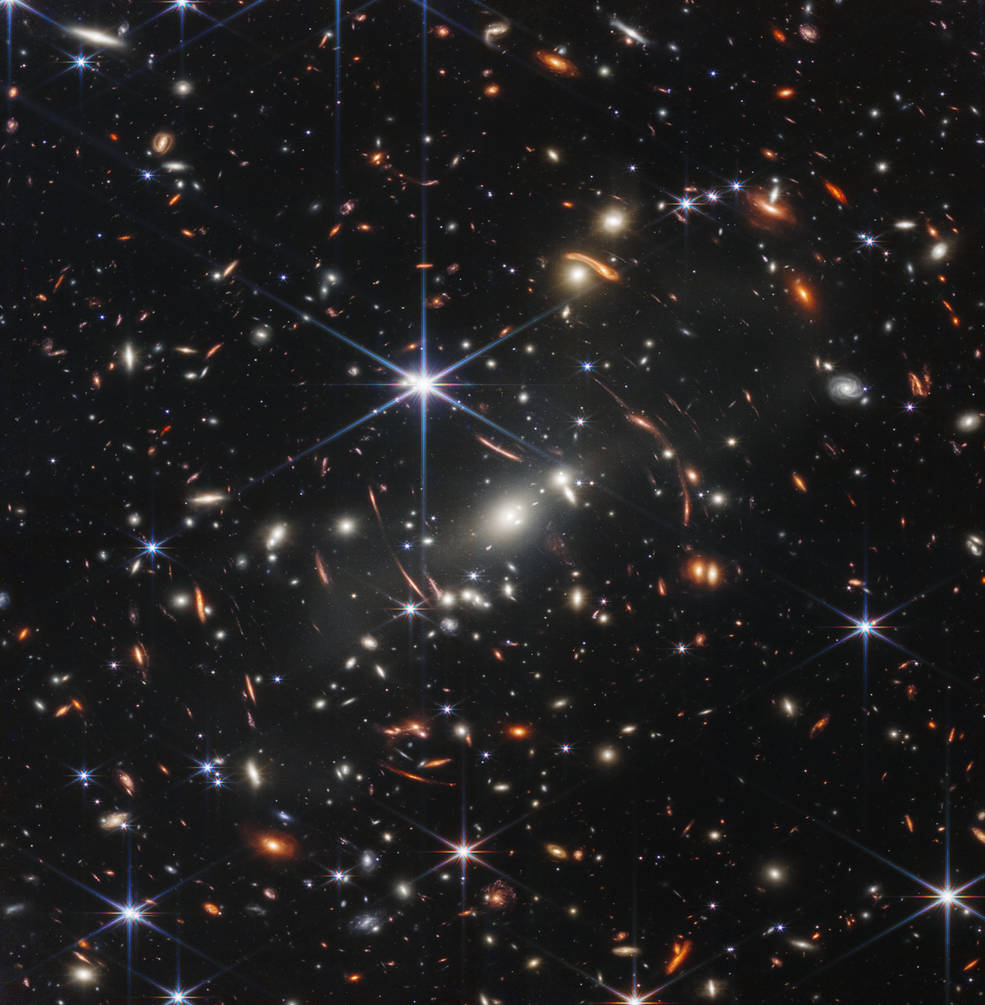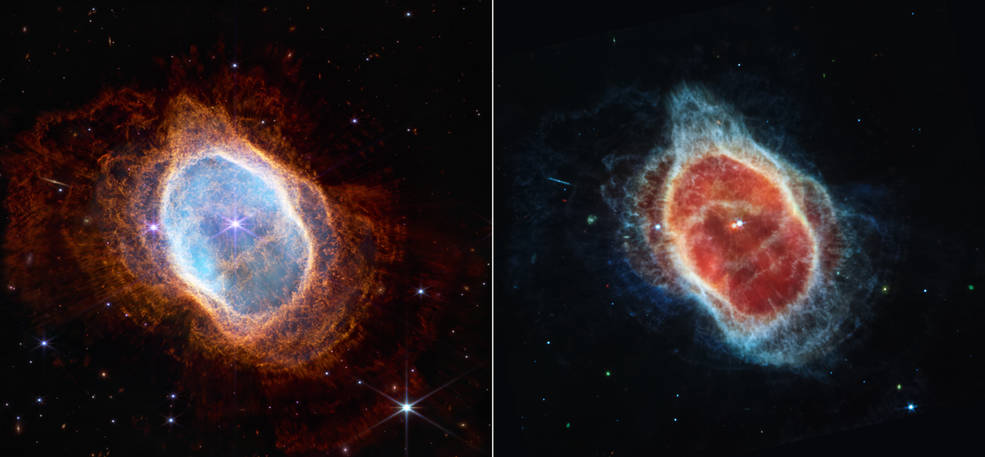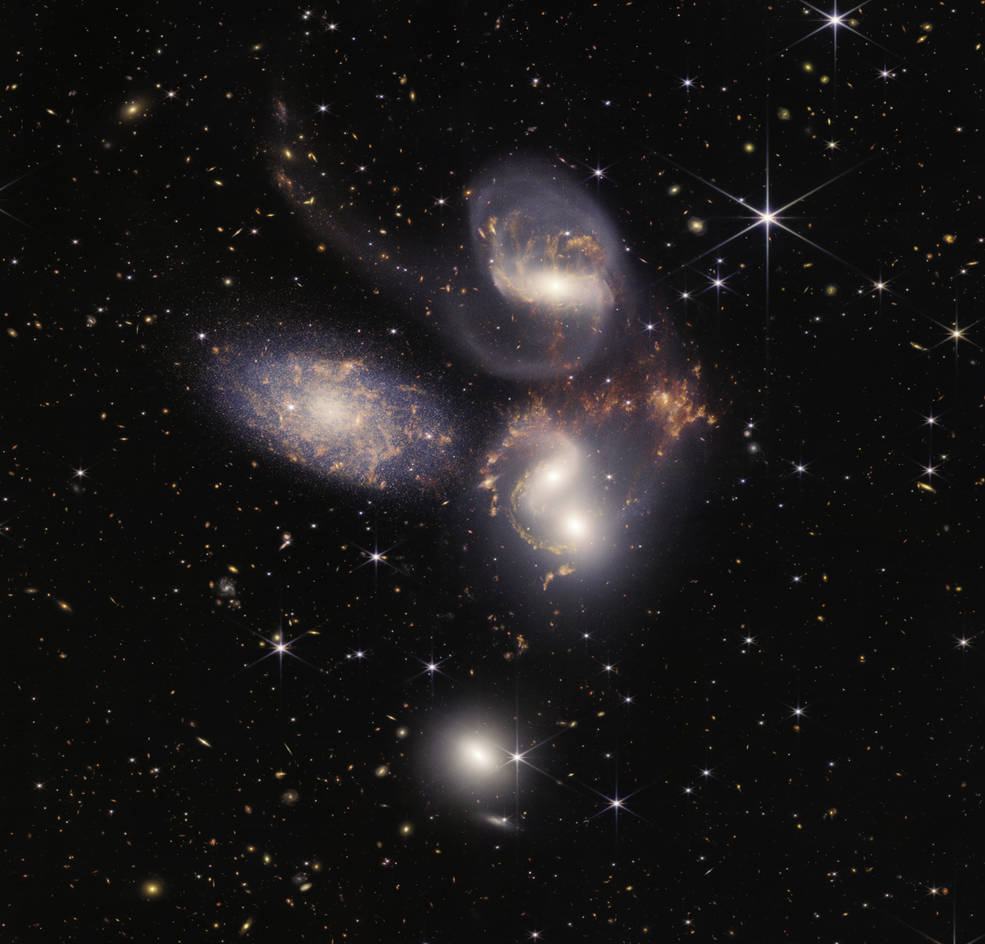NASA’s awesome space photography makes me want to explore Starfield more than Bethesda ever could
Space exploration is kind of amazing, isn't it?

The James Webb Space Telescope—or JWST—launched on Christmas day, 2021. I expect by now you've seen the results. The telescope is giving us the deepest look we've ever seen into the universe, and, while I'm not having an existential crisis about how small and insignificant humans are, I am struck with wonder.
These images are awesome. And not the version of the word we use when your friend says they can pick you up on the way to the cinema. Awesome as in awe-inspiring. Awesome as in jaw-dropping and perspective-changing. The pictures from the JWST even made me cry a little bit. But they also made me want to play Starfield more than Bethesda ever has.
Until recently, my primary excitement about Starfield has been the return of the developers' weird-ass characters. Their over-elasticated faces stretching with emotion and strange inter-battle quips are one of my favourite parts of Bethesda's previous works, and seeing how that translates to space will be a personal highlight. While others on the PC Gamer team debated if the 1,000 planets will be boring or not, I was focused on the interpersonal relationships of spaceflight. But with the arrival of those images from NASA, I have this overwhelming feeling that I need to know what's out there. And Starfield is gaming's next big adventure into space.

Of course, I've always been interested in the exploration aspect of Starfield, but the JWST amplified that curiosity. Just the first image, the SMACS 0723, was enough to baffle me. We're used to seeing stars and galaxies in concept. But an image where those items are warped by gravity to show us some of the oldest galaxies is conceptually ridiculous. And then to be told that what you're seeing is the equivalent of if you were holding a grain at arms length of the sky is brain-breaking. And the SMACS 0723 was just the warm up act for what NASA revealed on July 12.
Yesterday we got the images of the Southern Ring Nebula, Stephan's Quintet, and the Carina Nebula. And as they went up on Twitter, I was caught in rapture. Even if science and astronomy isn't a philosophical hobby of yours, these images capture your undivided attention if only for a second. Thousands if not millions of us set these as our backgrounds on PCs, phones, and tablets, unable to move on from these extraordinary concepts. Those images exist. There is a point in physical space where you could theoretically see that. It's up there somewhere. And through the incredible efforts of some of the smartest people on the planet, we get the smallest slice, no, crumbs of the universe to gorge ourselves on.



Bethesda may never have seen it coming, but I think the JWST's images may have inspired more than just myself. It's not only its game I'm intrigued by following these images but it's the most modern, and grounded in reality game we'll have on the market for landing on a planet and messing about to your heart's content.
Bethesda's best bit of marketing is now NASA itself rather than any of those round-table discussions or even its initial gameplay reveal. I want to see space. I want to find planets and traverse galaxies. I want to gaze at the sky and think there is something actually out there that I can see myself. Even if Starfield is fiction, the existence of the phenomena observed by the JWST are almost fictional to me too. We know they're real but they're so far from our reality that those clouds of spacedust register in my head as closer to art than science.
Keep up to date with the most important stories and the best deals, as picked by the PC Gamer team.
I know Bethesda's been hard at work moulding the world of Starfield as it is, but those pictures symbolise what exploring space means. They encapsulate the wonder of looking beyond anything we've ever seen before. Your gameplay trailer even says that's the purpose of the faction the protagonist in Starfield joins. Constellation's manta is: "We're all here because we're committed to the biggest question of all: What's out there?" And with the images from the JWST, that's what I want to know more than ever.
Oh, and another thing. NASA-punk is a ridiculous thing to call Starfield's aesthetic, not because it's not fulfilling a functional militaristic space purpose, but because NASA blows Starfield out the water with the cool shit it makes. Come on, have you seen what the JWST looks like? All that gold and silver, it's closer to a Met Gala outfit than anything we've seen from Starfield yet. NASA is cool as shit and games are yet to get to the lofty heights of its designs.
Imogen has been playing games for as long as she can remember but finally decided games were her passion when she got her hands on Portal 2. Ever since then she’s bounced between hero shooters, RPGs, and indies looking for her next fixation, searching for great puzzles or a sniper build to master. When she’s not working for PC Gamer, she’s entertaining her community live on Twitch, hosting an event like GDC, or in a field shooting her Olympic recurve bow.

